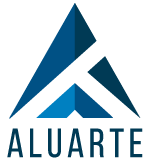- Ingeniería y Servicios Aluarte
- 938 384 2000
- contacto@aluarte.com.mx
Sole Proprietorship Definition, Advantages and Disadvantages
Займы 24 часа на карту, взять онлайн микрозайм 24 часа в Санкт
diciembre 29, 2022Signs and symptoms You Are Ready Designed for Marriage
enero 3, 2023Sole Proprietorship Definition, Advantages and Disadvantages

A proprietor does not need to provide a personal guarantee to their sole proprietorship, as the two are the same legal entity in the eyes of the law. A sole proprietorship may transform into another, more complex business structure if the business grows substantially. Corporations offer the strongest protection to its owners from personal liability, but the cost to form a corporation is higher than other structures. Corporations also require more extensive record-keeping, operational processes, and reporting.
If the business goes bankrupt, the sole proprietor has to file for personal bankruptcy, and both personal and business debts will be included in the bankruptcy proceedings. In addition, someone who sues a sole proprietorship can name the owner personally in the lawsuit and come after their personal assets. In the normal course of business, a business creditor or someone who sues the business can’t come after the personal assets of the owners. You can typically identify a business as a sole proprietorship by the fact that the owner’s name is the business’s name, though sole proprietorships can also operate under a brand name or trade name.
Income and Expenses for Sole Proprietorships
Government rules for larger enterprises and public companies, such as financial disclosure, require far more administration and do not apply to sole proprietorships. Designations like S corp and nonprofit aren’t strictly business structures — they can also be understood as a tax status. It’s possible for an LLC to be taxed as a C corp, S corp, or a nonprofit.

If you’re on the fence between the two types of business formation check out the full https://www.bookstime.com/ vs. LLC comparison. The owner’s ability to use their own time to earn greater profits to offset the cost of hiring help is a crucial consideration. If business requirements exceed the resources and financing available to proprietors, they will need to closely manage their working capital and potentially curtail the acquisition of fixed assets. Proprietors control all aspects of their business, including production, sales, finance, personnel, etc. This degree of freedom is attractive to many entrepreneurs, as the venture’s success also means personal success. State rules vary, but shares are usually barred from public trading.
How Does a Sole Proprietorship Work?
Similar to how all profits flow to the owner, all debts and obligations rest with the proprietor. Making regular payments can help a proprietor keep their tax burden from becoming overwhelming and incurring tax penalties. Tax advisors can help proprietors estimate taxes so they can set aside enough of the profits to make mandatory government payments[2]. A cooperative is a business or organization owned by and operated for the benefit of those using its services.
Amazon Business adds Affirm’s Buy Now, Pay Later as payment option – About Amazon
Amazon Business adds Affirm’s Buy Now, Pay Later as payment option.
Posted: Thu, 02 Nov 2023 12:58:29 GMT [source]
A sole proprietorship is the simplest and requires minimal paperwork. An LLC requires upfront paperwork and costs but could provide your business long-term benefits that make the investment worth it. Legal protection and potential tax advantages are two big factors to consider when choosing between a sole proprietorship and an LLC. A key difference between LLCs vs. sole proprietorships is tax flexibility. Only LLC owners can choose how they want their business to be taxed.
Credits & Deductions
Employees, contractors, and other services may be too costly for such sole proprietorships. The owner’s time must be productive enough to pay for the cost of hiring others. There are very few government rules and regulations that are specific to proprietors. Sole proprietors must keep proper records, file, and pay taxes on the business income and other personal income sources.

